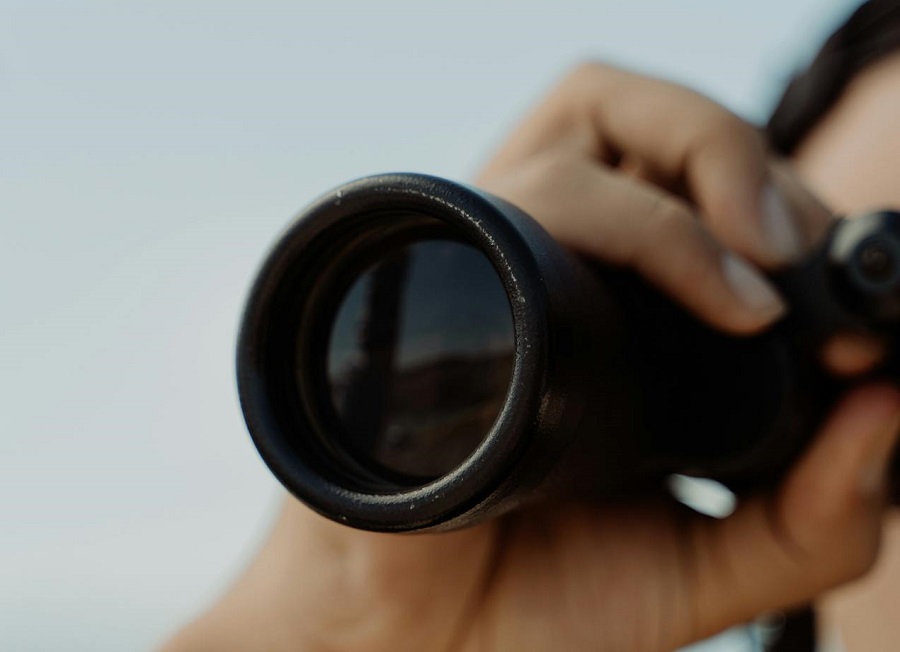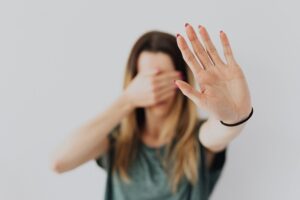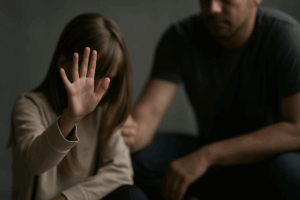Voyeurism offences in the UK: What the law says about hidden cameras and upskirting

When your privacy is violated by an intrusive glance or a secret recording, the shock is immediate and the sense of vulnerability profound. Recognised as a serious offence in the UK, voyeurism crime, including acts such as upskirting or the use of hidden cameras, can have lasting effects on victims. Understanding voyeurism law and seeking the guidance of a specialist solicitor to understand your legal options and obtain appropriate protection.

Key Takeaway: What does UK law say about voyeurism, and how does it protect victims?
Find out how to take action and safeguard your rights.
What is voyeurism?
Understanding voyeurism meaning is essential to recognising when the law has been violated. Voyeurism crime involves observing or recording someone in a private or intimate setting without their consent, often for sexual gratification. Anyone who takes intimate images of another person without consent can be prosecuted, whether in private or public spaces.
Upskirting
Upskirting, defined under the Voyeurism (Offences) Act 2019 (which amended Section 67A of the Sexual Offences Act 2003), involves taking photos or videos under a person’s clothing without their consent. Such voyeurism offences often occur in public spaces like buses, parks, or streets when the victim is unaware they are being filmed. The legislation recognises two purposes for such acts: obtaining sexual gratification or causing humiliation, distress, or alarm to the victim.
Hidden cameras and other forms of voyeurism
Voyeurism crime also includes the use of hidden cameras in bedrooms, bathrooms, changing rooms, or workplaces. Filming someone without their knowledge in a space where they can reasonably expect privacy, even in public, constitutes a legal violation. These recordings can be used as evidence, and the perpetrator can be prosecuted for invading privacy or harassment. Section 67 of the Sexual Offences Act 2003 specifically addresses observation or recording for sexual gratification where the victim is in a private place or engaged in a private act.
What are the penalties and obligations for voyeurism offences in the UK?
Penalties for voyeurism offences vary depending on the severity of the act, the offender’s intent, and the impact on the victim. Voyeurism sentencing follows voyeurism guidelines established by the Sentencing Council to ensure consistency across courts:
- Fines may be imposed for less serious offences, though it is important to note that voyeurism law treats most cases seriously given the invasive nature of the conduct.
- Imprisonment is common for voyeurism offences. Under Section 67 of the Sexual Offences Act 2003, offenders can face up to two years in prison on conviction on indictment, whilst upskirting under the Voyeurism (Offences) Act 2019 carries a maximum voyeurism sentence of two years’ imprisonment.
- Combined penalties can apply in certain cases, for example repeatedly filming in a private space or sharing images online, where an offender can receive both a fine and a prison sentence.
Registration on the Sex Offender Register
Some convictions for voyeurism crime require the offender to register on the Sex Offender Register. This official UK database contains the personal details of individuals convicted of sexual offences.
Registration can last from a few years to life, depending on the severity of the offence. It requires providing personal information and complying with restrictions, such as limits on locations visited and contact with minors.
Example:
Someone convicted of upskirting or sharing intimate images without consent must register, even if the prison sentence is short.
Aggravating factors
Certain circumstances can increase the severity of the penalty:
- Distribution of images: using images to harass, threaten, or post online (for example, sharing upskirting videos on social media).
- Multiple victims: filming or observing multiple people without their knowledge, such as several colleagues at work or multiple passengers on public transport.
- Professional position or abuse of authority: committing the offence in a workplace setting or abusing a position of power, for instance filming an employee in a changing room.
How can someone defend themselves against a voyeurism charge?
When a person faces voyeurism charges in the UK, it is important to understand that the law distinguishes criminal intent from a mistake or misunderstanding. A simple error or oversight may be treated differently from a deliberate act when considering voyeurism charges.
Depending on the context, certain factors can support a defence:
- No intent to violate privacy: for example, taking a photo in a public place without realising someone was being filmed inappropriately. It must be shown that the act was not intended for sexual or voyeuristic purposes.
- Context and circumstances: demonstrating that the area filmed was not private, fir instance as filming in a hallway or on a public pavement where no expectation of privacy existed.
Do I need a solicitor for a voyeurism case?
Whether you face voyeurism charges or have been a victim of voyeurism crime, specialist legal advice is essential to navigate voyeurism law effectively.
If you have been accused of a voyeurism offence, a solicitor can help you:
- Understand the charges: clarify whether the alleged act qualifies as a voyeurism offence under UK law, such as upskirting or hidden camera use.
- Assess evidence: review videos, photos, witness statements, and context to determine if there was criminal intent.
- Prepare a defence: identify possible defences, such as mistake, lack of intent, or absence of a reasonable expectation of privacy.
- Navigate court procedures: advise on bail, hearings, and potential sentencing outcomes, including fines, imprisonment, or registration on the Sex Offender Register.
- Protect your rights: ensure that your legal rights are upheld throughout the investigation and trial.
If you have been targeted by a voyeurism offence, a solicitor can assist you to:
- Understand your legal options: explain the laws protecting you, such as upskirting legislation and offences involving hidden cameras.
- Secure evidence: advise on how to preserve videos, photos, messages, or witness statements.
- Seek protection: help apply for legal measures such as restraining orders or reporting to the police.
- Claim compensation: guide on potential claims for damages or restitution for emotional or material harm.
- Support throughout the process: provide support by explaining court procedures and advocating for your interests if the case involving voyeurism charges goes to trial.
FAQs
Can I report it if I find a hidden camera in a public or private place? Yes, you can report the incident to the police, even if no images have been shared. Installing a camera without consent is considered a voyeurism offence.
Is there a time limit for taking action after a voyeurism act? There is no strict statutory time limit for reporting voyeurism offences in England and Wale, but acting quickly helps preserve evidence and increases the effectiveness of any investigation.
Can minors be victims or perpetrators of voyeurism? Yes, minors can be involved as victims or offenders. The justice system adjusts measures and penalties according to the age of those involved and the severity of the act.
Voyeurism crime leaves invisible but deep scars. Understanding the law, knowing your rights, and acting quickly can protect you, whether you are a victim or accused, and prevent seemingly harmless images or situations from turning into serious legal matters.
Don’t let voyeurism destroy your life!
Qredible’s network of specialist solicitors understands voyeurism law inside out and can guide you through every step of the legal process.
KEY TAKEWAYS:
- Voyeurism offences in the UK carry serious legal consequences, including fines, imprisonment, and registration on the Sex Offender Register.
- Voyeurism law distinguishes between criminal intent and accidental or misunderstood actions; intent and victim impact are central to penalties.
- Evidence, context, and timing are important for both defending against voyeurism charges and supporting victims’ claims.
Articles Sources
- legislation.gov.uk - https://www.legislation.gov.uk/ukpga/2019/2
- legislation.gov.uk - https://www.legislation.gov.uk/ukpga/2003/42
- gov.uk - https://www.gov.uk/government/publications/criminal-justice-bill-2023-factsheets/criminal-justice-bill-intimate-images
- gov.uk - https://www.gov.uk/government/news/upskirting-know-your-rights
- gov.uk - https://www.gov.uk/government/news/new-laws-to-better-protect-victims-from-abuse-of-intimate-images
Do you need a solicitor?
Find a solicitor on Qredible in just a few easy steps

















